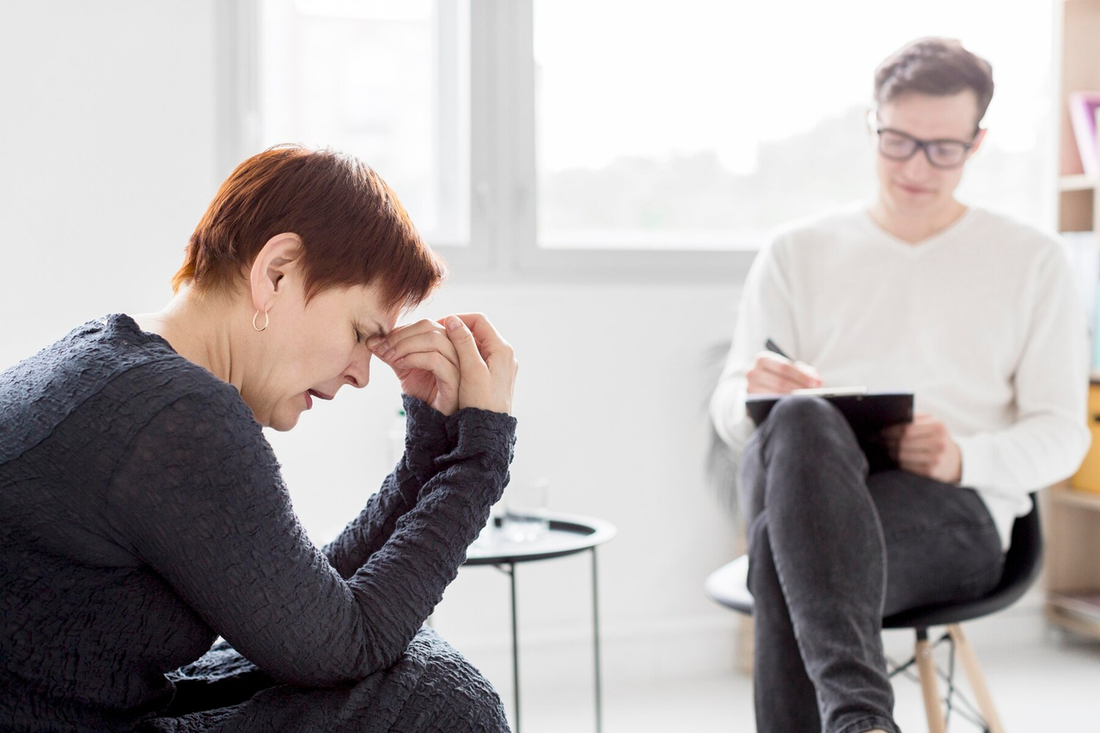Depression is a common yet serious mental health condition that affects millions of people worldwide. Recognizing the signs and seeking appropriate treatment can significantly improve quality of life. Here’s how you can identify symptoms of depression and explore treatment options for better mental health.
Understanding Depression
1. What is Depression?
Depression is more than just feeling sad or going through a rough patch. It's a complex mental health disorder that affects mood, thoughts, and behavior, often leading to a variety of emotional and physical problems.
2. Common Symptoms:
Symptoms of depression can vary, but they typically include:
-
Persistent sadness or a low mood
-
Loss of interest or pleasure in activities once enjoyed
-
Changes in appetite and weight
-
Sleep disturbances (insomnia or oversleeping)
-
Fatigue or lack of energy
-
Feelings of worthlessness or excessive guilt
-
Difficulty concentrating or making decisions
-
Thoughts of death or suicide
Recognizing the Signs
1. Emotional Symptoms:
Depression often manifests through emotional symptoms such as persistent sadness, anxiety, or feelings of hopelessness. These emotions can be overwhelming and persistent, lasting for weeks or even months.
2. Physical Symptoms:
Depression can also cause physical symptoms like unexplained aches and pains, changes in appetite, and sleep disturbances. These physical symptoms can exacerbate the emotional toll of depression.
3. Behavioral Changes:
Changes in behavior, such as withdrawing from social activities, neglecting responsibilities, or exhibiting risky behavior, can also indicate depression. Recognizing these changes is crucial for early intervention.
Effective Treatment Options
1. Psychotherapy:
Also known as talk therapy, psychotherapy involves working with a mental health professional to address the underlying causes of depression. Cognitive-behavioral therapy (CBT) and interpersonal therapy (IPT) are commonly used to treat depression.
2. Medication:
Antidepressant medications can help regulate mood and alleviate symptoms of depression. It's essential to work with a healthcare provider to find the right medication and dosage for your specific needs.
3. Lifestyle Changes:
Incorporating healthy lifestyle changes can significantly impact mental health. Regular exercise, a balanced diet, adequate sleep, and mindfulness practices can help improve mood and reduce symptoms of depression.
4. Support Networks:
Building a strong support network of friends, family, and support groups can provide emotional assistance and encouragement. Sharing your feelings and experiences with others can be incredibly beneficial.
Strategies for Seeking Help
1. Acknowledge the Problem:
The first step in seeking help is acknowledging that you’re experiencing symptoms of depression. Accepting that you need help is a crucial step toward recovery.
2. Talk to a Professional:
Consulting with a mental health professional, such as a psychologist, psychiatrist, or counselor, can provide you with the support and guidance needed to manage depression effectively.
3. Utilize Resources:
Many resources are available to those struggling with depression, including hotlines, online support groups, and community resources. Utilize these tools to find the help you need.
4. Develop a Treatment Plan:
Work with your healthcare provider to develop a comprehensive treatment plan that includes therapy, medication, and lifestyle changes tailored to your specific needs.




